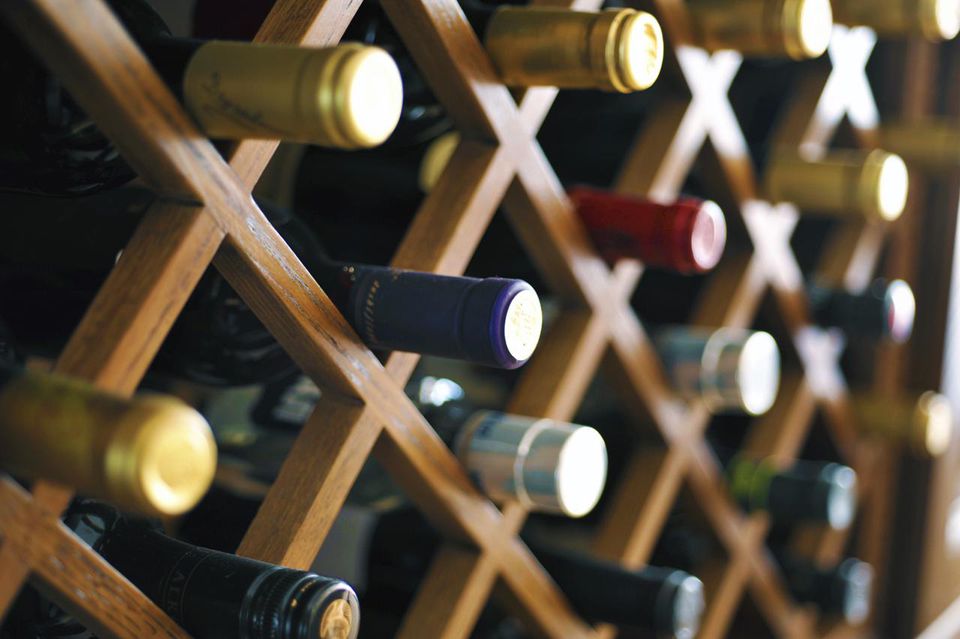How do you store fine wines?
Store Fine Wine
Fine wines are one of the few commodities that improve with age and are therefore are purchased with the intent of long-term storage. The most important consideration for keeping wine for long-term ageing is the consideration of how the wine is stored. If the wine is kept in inadequate conditions the wine will rapidly deteriorate.
When storing wine there are many factors to consider:
1. Turn the lights off
Did you know vintners use coloured glass bottles in order to protect the wine from direct sunlight? The colour basically works like sunglasses for wine! This is because light can degrade and prematurely age wine. UV rays can cause wine to be ‘light struck,’ giving the wine an unpleasant smell. Although light from household bulbs won’t damage the wine itself, it can fade your labels in the long run. To protect your wine investment, store all wines in the dark!
2. Preserve wine bottles horizontal
If wines are stored upright for a long period of time their corks will eventually dry out and air will get the wine causing that wine to spoil. But if you store wine bottles on its side the wine will push against the cork and keep that cork from drying out. If you’re planning on drinking wine mid-term, or if that wine bottle has an alternative closure, then this is not completely necessary. But horizontal racking is still suggested as this is a space-efficient way to store wines of all nature.
3. Temperatures must be cool and consistent
If you intend to age wine for more than one year then refrigeration is a must! Even a below-ground cellar will not be cool enough. Wine storage temperature should not go above 75˚F (24°C) as the wine will begin to oxidize and letting the temperature drop below 54°F will slow down the aging process. The ideal temperature for storing a varied wine collection of both white and red is 54°F (12.2°C).
When storing wine the temperature of the storage area should be as constant as possible and all changes in temperature should occur slowly. Temperature changes will cause the wine to over breathe resulting in premature aging. Do not endure your wine to a temperature fluctuation which is more than 3°F (1.6°C) a day or 5°F (2.7°C) a year.
4. Keep humidity levels high
To keep the wines cork from drying and to minimise wine evaporation then a humidity of around 70% is required. Do not allow the humidity to go too much over 70% as this will cause labels to loosen and mold growth. Sure Wines highly suggest in purchasing a hygrometer in order to track moisture conditions effectively.
5. Do not shake the wine bottles
There are many theories that vibrations of different frequencies can damage the wine in the long term by having their own distinct effect on the chemistry of the wine. As a result it has been known for some wine collectors to fret about the most subtle of vibrations. However this still remains a research area with little data. Place your wine in a room with no vibrations as significant movement could disturb the sediment in older wines keeping them from settling.
6. Store away from strong odours
Do not store your wines with anything that gives off a strong smell such as fish. Wine breaths and therefore the odour will permeate through the cork and cause the wine to taint. Good room ventilation will prevent odours from entering the cork.
7. Maintain wines for the appropriate time
Always store your wines for the appropriate amount of time. Generally new world/ inexpensive wines do not improve over time. Normally red wines take 2-10 years to mature depending on the type of wine and balance of sugar. Whereas most white wines takes 2-3 years to be at optimal drinking age. A select type of white wines can be aged for over twenty years including most Burgundies and Chardonnays.
So, where is the best place to store fine wines at home?
If you haven’t been blessed with an on-site rock wall, a wine cave or an underground cellar there are other accommodations that you can use in order to safeguard your favourite wines. Remember light and heat will destroy the conditions of your wine so look for a location which is not indirect with any sunlight. A not-too-damp basement will provide the ideal storage solution as it meets all the essential requirements. But if you are looking for a more prime storage area then search the market for a wine storage cabinet and refrigerator. These climate controlled cabinets come in a variety of sizes, offering as little as 16 bottles to over 600 bottles a place to rest.
If you remember to keep your wine bottles consistent, cool, dark, still and sideways then wine storage is easy! If you require any more information on storing your wines at home do not hesitate to contact the Sure Holdings Wine experts!





